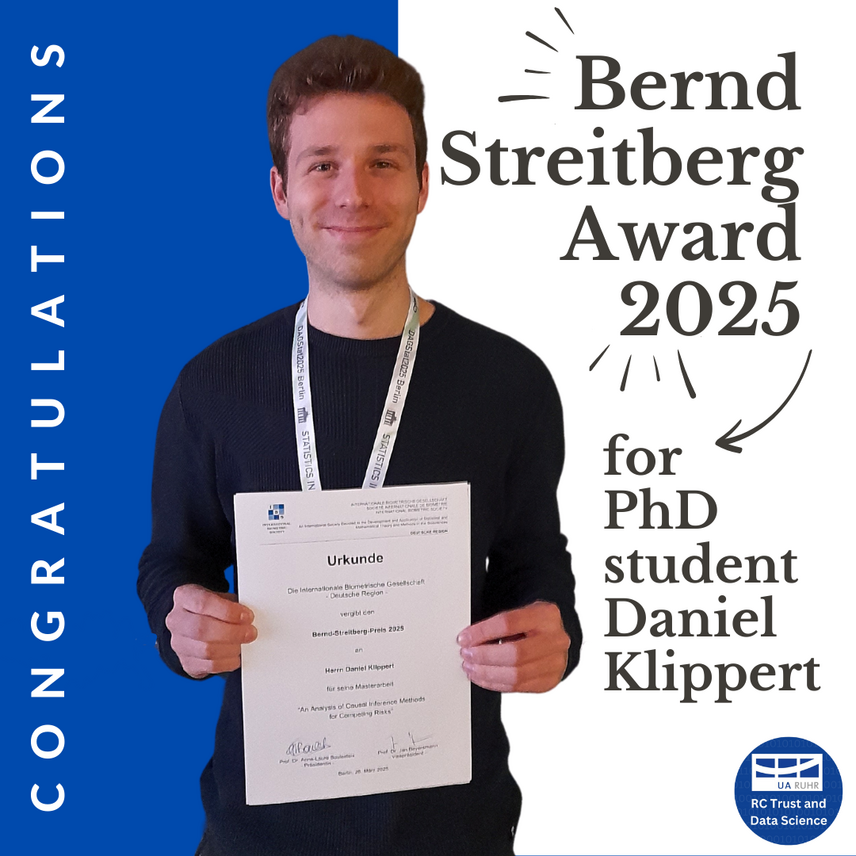Welcome to the Causality Group!
The chair of Causality was established in June 2024 and is led by Alexander Marx. We are part of the Department of Statistics at TU Dortmund University and affiliated with the Research Center Trustworthy Data Science and Security.
Our research focuses on causality and machine learning, with an emphasis on causal discovery, causal inference, and their connections to out-of-distribution generalization, representation learning, and information theory. We aim to enhance the trustworthiness, robustness, and generalization capabilities of AI systems by tackling fundamental challenges in data-driven decision-making. For more details, please check out our full list of publications.
Thesis Projects: If you are interested in the groups research, please feel free to contact us for a thesis project. Please attach your current transcript of records and a briev CV. Potential topics include heteroscedastic regression (in the context of causal discovery) [1],[2],[3], regression estimators for causal inference (see, e.g., [4],[5]), or representation learning [6],[7].
30.03.2025
 Photo by Markus Pauly
Photo by Markus Pauly
Daniel Klippert was honored with the Bernd Streitberg Award 2025 for his master thesis "An Analysis of Causal Inference Methods for Competing Risks". The thesis was supervised by Prof. Dr. Markus Pauly (RC Trust, TU Dortmund) and Prof. Dr. Sarah Friedrich-Welz (Mathematical Statistics and AI in Medicine, University of Augsburg). The Bernd Streitberg Award is awarded for excellent biometric theses by the German Region of the International Biometric Society.
In his thesis, he addressed the challenge of estimating conditional average treatment effects (CATEs) from survival data with competing risks. In such settings, an individual is at risk of failure due to multiple competing events. For instance, in medical applications, this could mean distinguishing between different causes of death rather than considering only death overall. This allows for estimating the causal effects of treatments in preventing specific causes of death, rather than just their effect on overall survival. The primary contribution of his thesis is a simulation study that systematically evaluates the predictive performance of various meta-learners developed for CATE estimation in competing risks settings, with the objective of providing guidance for their practical application in real-world scenarios.